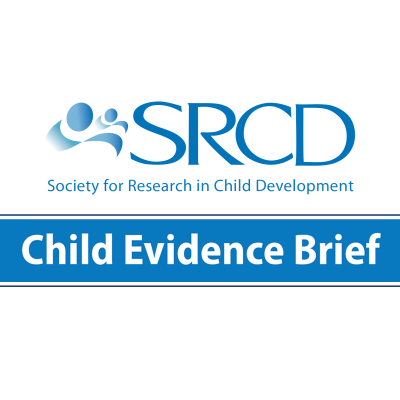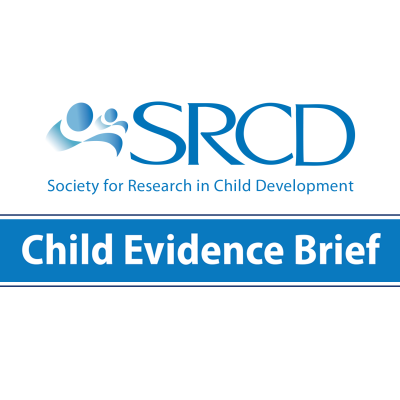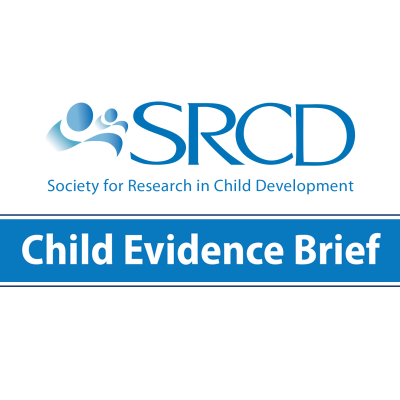Children of Undocumented Parents: How Public Policy and Community-Based Organizations Can Help Reduce Risks
Social Policy Report Brief, Volume 27, Issue 3
Why Does This Matter?
Policy debates about undocumented immigration in the United States focus most often on adults and adolescents. Yet 5.5 million children in the United States live with at least one undocumented immigrant parent, and 4.5 million of these children are U.S.-born citizens. Since nearly a third of children of immigrants have an undocumented parent, this group’s well-being—including how they do in school and in transitioning to adulthood—is important to U.S. society.
Immigration policy rarely considers the perspective of the 5.5 million children of undocumented parents, a significant portion of our child population.
Policy Implications
Public policies and the practices of community-based organizations may help reduce the developmental risks for children of undocumented parents. Policymakers should:
- Consider parents of U.S.-born children a subgroup in immigration enforcement actions;
- Address undocumented parents’ job conditions, including pay rates below minimum wage and lack of access to benefits, by revising enforcement of federal labor laws or supplementing them at a state level;
- Institute a pathway to citizenship for undocumented parents and for youth, which would reduce parents’ reluctance to enroll their U.S.-citizen children in programs for which they are eligible; and
- Work toward a comprehensive approach in actions regarding undocumented parents that considers the span of childhood and the entire family, which research suggests is better for children’s development.
Community-based organizations should:
- Help families enroll their children in means-tested benefits programs for which they are eligible;
- Facilitate applications for eligible parents to Deferred Action for Childhood Arrivals (providing temporary protection from removal for some under 31 who came to the United States as minors);
- Provide information about programs that benefit children’s development in trusted settings like churches; and
- Help workers apply for benefits contingent on employment by providing proof-of-income letters, and help localities use municipal identification to access resources.
What the Research Says
- Having an undocumented parent constitutes a risk to children’s learning, school progress, and socioemotional development above and beyond socioeconomic risk.
- Undocumented parents are ineligible for most federal benefits; although their U.S.-born children are eligible for many benefits, they may not be enrolled because parents lack information or choose to stay off authorities’ “radar screen.”
- Undocumented parents suffer psychological distress and hardship due to their status. Children’s growing awareness of parents’ status contributes to less positive development and, by adolescence, a greater likelihood of dropping out of school.
- Parents’ undocumented status is associated with lower cognitive development and educational progress in children. By adolescence and young adulthood, having an undocumented parent is associated with lower academic expectations, fewer years of schooling, lower educational attainment and college attendance, and more anxiety and symptoms of depression.
- Having an undocumented parent arrested and removed from the United States can increase children’s behavior problems and symptoms of anxiety and depression, and boost their remaining parent’s or caregiver’s economic hardship.
Facts at a Glance
- Relatively few young children accompany adults who cross borders outside the law. Most children with an undocumented parent are U.S. citizens born in the United States; more than 60% of U.S. births to undocumented parents occur five or more years after migration.
- Although recent flows have decreased substantially, the total U.S. undocumented population of 11.5 million continues to be near its historic high. In 2011, roughly 6.8 million or 59% of the total were immigrants from Mexico. The next leading countries of origin were El Salvador (660,000 or 6%), Guatemala (520,000 or 5%), Honduras (380,000 or 3%), and China (280,000 or 2%).
- In 2012, the Obama Administration issued the Deferred Action for Childhood Arrivals Memorandum providing a two-year reprieve from deportation for those under 31 who met certain requirements. This memorandum came in the absence of legislation—like the DREAM Act—that would have provided a pathway to citizenship for youth and young adults who arrived as children.
This brief summarizes a longer Social Policy Report, "The Role of Public Policies and Community‐Based Organizations in the Developmental Consequences of Parent Undocumented Status," by Hirokazu Yoshikawa, Courtney Sale Ross University Professor of Globalization and Education at New York University; Jenya Kholoptseva, a doctoral candidate at the Harvard Graduate School of Education; and Carola Suárez-Orozco, Professor of Human Development and Psychology at the University of California, Los Angeles (UCLA).


